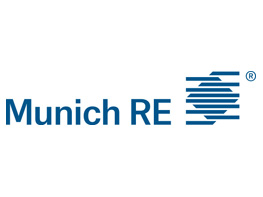Legal Roundup: Boeing, Amazon, L’Oreal and Google Face Major Lawsuits

Boeing Crash Victims’ Families Can Challenge U.S. Settlement
The case: In 2019, the Boeing 737 MAX was grounded after 346 people were killed in two crashes. The U.S. Department of Justice then brought a criminal suit against Boeing, claiming that the airplane manufacturer “conspired to defraud the Federal Aviation Administration.” Boeing agreed to a $2.5 billion settlement in January 2021, according to the New York Times. Families of the victims took the case to U.S. District Court in Texas.
Scorecard: Federal judge Reed O’Connor has overturned the settlement.
Takeaway: O’Connor “questioned Boeing’s 737 MAX plea deal as the U.S. Justice Department did not seek input from families of the victims of the two MAX crashes in Indonesia and Ethiopia,” according to Simple Flying.
O’Connor said that “the 346 people who were killed in the crashes in 2018 and 2019 qualify as ‘crime victims’ under the Crime Victims’ Rights Act,” according to the New York Times. “The relatives of some of the crash victims said the deferred prosecution agreement between the Justice Department and the company violated their rights.” The case can now be argued in court.
Amazon Hit With $1B Antitrust Class Action in UK
The case: British consumer rights advocate Julie Hunter has filed a class action suit against Amazon asking for damages of up to 900 million pounds, or $1 billion. “Hunter plans to bring the collective action on behalf of British consumers who have made purchases on Amazon since October 2016,” according to Reuters.
Amazon is “accused of using a ‘secretive’ algorithm to abuse its dominant position in e-commerce,” according to CNBC. The lawsuit claims that by directing consumers to a “featured offer,” better-value deals are hidden and consumers pay more, reported CNBC. The suit is set to go before the UK’s Competition Appeal Tribunal.
Scorecard: The case has recently been filed and has not yet reached a resolution.
Takeaway: The suit is “being brought on an ‘opt-out’ basis, meaning that any potential claimants will be included in the claim unless they choose to opt out,” according to Reuters.
Earlier this year, the Competition Appeal Tribunal authorized “an estimated 920 million pound ($1.1 billion) damages claim against Google … and approved another case worth up to 1.7 billion pounds against Apple,” reported Reuters. “The tribunal is also due to decide in January whether to give the go-ahead to a claim valued at up to 2.2 billion pounds against Meta Platforms.”
L’Oreal Sued for Alleged Carcinogenic Hair Straightener
The case: A new study released by the National Institute of Environmental Health Safety showed that “hair-straightening products may significantly increase the risk of developing uterine cancer among those who use them frequently,” according to Reuters.
Just days later, Jennifer Mitchell filed a suit against L’Oreal and four other hair-straightening product manufacturers in Chicago federal court, according to Good Morning America. She was diagnosed with uterine cancer; Mitchell used hair straighteners since third grade.
Scorecard: The case has recently been filed and has not yet reached a resolution.
Takeaway: The NIEHS study found that the risk of uterine cancer jumped from 1.64% to 4.05% among people who used hair straighteners. “Uterine cancer is the most common gynecologic cancer in the United States, according to the U.S. Center for Disease Control and Prevention (CDC), with rates rising, particularly among Black women,” reported Reuters.
Mitchell, now 32, underwent a full hysterectomy and is now unable to bear children, according to Good Morning America. “Scientists caution that it’s not clear yet if these products cause cancer. For now, research only hints at only a probable link.”
Google Sued in Texas for Use of Facial Images Without Consent
The case: Texas Attorney General Ken Paxton sued Alphabet, the parent company of Google, “alleging the search giant violated state laws by collecting biometric data on face and voice features without seeking the full consent of users,” according to the Wall Street Journal. Paxton said that, since 2015, Google’s data collection has affected millions of Texas users. The filing calls out data collected by Google Photos, Google Assistant and Nest smart home products, which was then allegedly used for commercial purposes.
Scorecard: The case has recently been filed and has not yet reached a resolution.
Takeaway: The Texas AG has had his sights set on big tech for some time. “The case follows a similar suit Texas brought against Facebook parent Meta Platforms Inc. in February. Meta, which discontinued its use of facial-recognition technology last year, said the claims were without merit,” reported the WSJ. “Texas is also leading a coalition of states suing Google for allegedly anticompetitive behavior in online advertising markets.” A related data privacy class action out of Illinois recently yielded a $100 million settlement from Google. &










